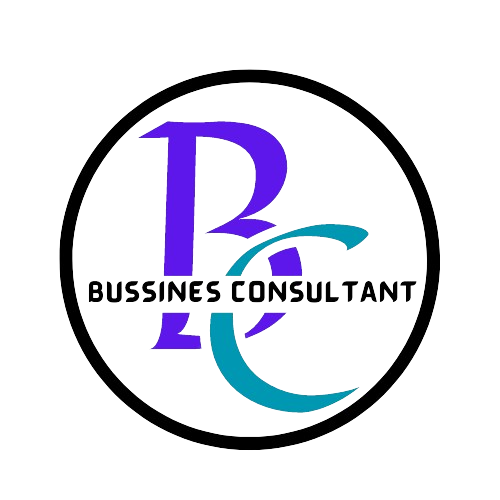Understanding how to start a business in texas
Overview of Texas’s Economy
Texas boasts a dynamic economy, making it a prime location for budding entrepreneurs. Here are some key insights about the economy:
- Key industries driving growth: Texas has a robust presence in sectors like energy (oil and gas), technology, agriculture, and healthcare. The state’s diverse economy is resilient and adaptable, allowing for growth in various fields.
- Economic indicators and trends: The labor market in Texas is strong, with low unemployment rates compared to other states. Growth trends highlight a consistent increase in jobs, especially in tech and service industries.
- Texas’ position in national and global markets: As one of the largest economies in the U.S., Texas proudly ranks as a leader in exports and innovation, attracting businesses from around the world.
Benefits of Starting a Business in Texas
Starting a business in Texas has its perks that can significantly impact your success:
- No state income tax: One of the biggest draws is the absence of a state income tax. This allows you to take home more of what you earn, which can be reinvested into your business.
- Business-friendly regulations: Texas prides itself on fostering an environment that supports entrepreneurs. Many regulations promote ease of starting and running a business.
- Availability of resources and support networks: From workshops by local chambers of commerce to mentorship programs and networking events, Texas offers countless resources to help entrepreneurs thrive.
Challenges to Consider
While Texas is an attractive place to start a business, be aware of potential obstacles:
- Competition in a diverse market: The booming economy means that many entrepreneurs are eyeing the same opportunities, leading to stiff competition in many industries.
- Regulatory requirements: Navigating through state and federal regulations can take time, so it’s essential to stay informed.
- Geographic and logistical considerations: With Texas being vast, consider how location affects transportation, supply chain logistics, and customer access.

Developing Business Idea
Identify Your Niche
Finding the right niche is crucial for your business’s survival and growth:
- Market research techniques: Utilize tools like surveys, focus groups, and online research to gather insights into your target market’s preferences and behaviors.
- Analyzing consumer needs and gaps: Look for areas where consumer needs are unmet. For example, if you notice a lack of vegan restaurant options in your area, that could be a gap to fill.
- Evaluating competition in your chosen niche: Analyze your competitors to understand their strengths and weaknesses. This information can help you identify what you can do differently or better.
Creat a Business Plan
A solid business plan is your roadmap to success:
- Key components of a business plan: Include an executive summary, market analysis, organizational structure, and marketing strategies.
- Importance of setting achievable goals: Set specific, measurable, attainable, relevant, and time-bound (SMART) goals to guide your business journey.
- Financial projections and budgeting: Outline your expected revenue and expenses to ensure you have a realistic financial roadmap.
Validat Your Idea
Before diving in, it’s essential to validate your business idea:
- Importance of customer feedback: Gather opinions from potential customers to see if your idea resonates with them.
- Conducting pilot tests or prototypes: Launching a small-scale version of your product or service can give you insights and improve your offering.
- Utilizing surveys and focus groups: Engage with focus groups to refine your concept based on real user feedback.

Choosing the Right Business Structure
Overview of Business Structures
Choosing the right structure can affect your taxes, liability, and registration requirements:
- Sole Proprietorship: The simplest and most common structure, but it offers no personal liability protection.
- Limited Liability Company (LLC): Provides liability protection and tax flexibility while keeping things relatively simple in terms of management.
- Corporation: Best for larger businesses with multiple shareholders. This structure offers the most protection but comes with more regulations.
Pros and Cons of Each Structure
Consider these aspects before settling on a business structure:
- Liability implications: An LLC or corporation separates personal and business assets, offering better protection than a sole proprietorship.
- Tax considerations: Different structures come with different tax implications; for instance, corporations are taxed on their profits, while LLCs can opt for pass-through taxation.
- Administrative requirements: Some structures require more paperwork and ongoing maintenance, which can be burdensome for small business owners.
How to Register Your Business Structure (start a business in texas)
Follow these steps to get your business registered in Texas:
- Steps for registering an LLC or Corporation in Texas: Start by choosing your business name, then file the appropriate formation documents with the Texas Secretary of State.
- Filing necessary paperwork: Ensure you have all the required forms, such as the Certificate of Formation for an LLC or Corporation, properly filled out.
- Understanding state and federal regulations: Familiarize yourself with both state and federal regulations to ensure compliance.
Secure Financing for Business
Explore Funding Options
Identifying how you’ll fund your business is crucial:
- Personal savings and loans: Many entrepreneurs start with personal savings or family loans. It requires careful budgeting to avoid financial strain.
- Business loans and lines of credit: Banks and credit unions offer various options, but be prepared to present a solid business plan to secure funding.
- Grants and investment opportunities: Research grants available for new businesses, especially in innovation-driven sectors.
Prepar Your Financial Documents
Having robust financial documents will help you secure funding:
- Creating a detailed budget: Outline your expected revenue and costs to give yourself a clear financial picture.
- Importance of a solid credit history: A good credit score can affect your ability to secure loans at favorable rates, so keep an eye on your finances.
- Financial forecasting and cash flow analysis: You’ll need projections to show how much money your business will make and when it will spend.
Approaching Potential Investors
When seeking investors, presentation is key:
- Creating an effective pitch: Clearly articulate your business vision, market opportunity, and why you’re the right person to execute it.
- Understanding investor expectations: Familiarize yourself with what investors look for, including return on investment and business growth potential.
- Building professional relationships: Networking can lead to potential investment opportunities, so be proactive in making connections in your industry.
Setting Up Operations
Find the Right Location
Choosing the right location can significantly affect your business’s success:
- Factors to consider when selecting a location: Think about your target market, demographics, and accessibility for customers and suppliers.
- Importance of zoning laws: Ensure that your business type is permitted in the chosen location to avoid regulatory issues down the line.
- Leasing vs. buying commercial property: Weigh the pros and cons of leasing versus buying based on your budget, needs, and long-term plans.
Obtain Necessary Licenses and Permits
Make sure you complete this essential step before opening:
- Overview of common permits in Texas: Requirements vary based on your business type but may include health permits, occupancy permits, and sales tax permits.
- Specific requirements for different industries: Research any industry-specific licenses that may be necessary to operate legally.
- Resources for application processes: Utilize the Texas Department of Licensing and Regulation for guidance on obtaining the necessary permits.
Hiring and Managing Employees
Finding and managing the right team is crucial to your business’s success:
- Understanding labor laws in Texas: Familiarize yourself with federal and state labor laws to ensure compliance.
- Best practices for recruitment: Utilize platforms like LinkedIn and local job boards to reach potential candidates and foster a diverse workplace.
- Importance of employee training and development: Investing in employee training can lead to higher job satisfaction and retention rates.
Conclusion
Starting a business in Texas can be a rewarding journey filled with both challenges and opportunities. By understanding the local business landscape and following these practical steps—developing a solid idea, choosing the right structure, securing financing, and setting up operations—you can pave the way for a successful venture. Now is the time to turn your business dreams into reality and contribute to Texas’s vibrant economy.
Industries like energy, healthcare, and technology have shown consistent success, but unique niches can also thrive with the right approach.
Generally, registering an LLC or Corporation can take a few days to several weeks, depending on the processing times.
Failing to conduct thorough market research, underestimating startup costs, and neglecting regulatory requirements can be detrimental.
Local chambers of commerce, small business development centers, and networking events can offer valuable resources and connections.
While Texas does not impose a state income tax, businesses may be subject to franchise taxes and other federal taxes. Consulting with a tax professional is advisable.




